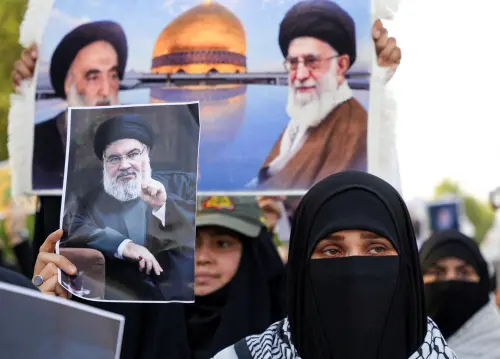In recent years, the rising terrorist threat in Africa has become an increasing concern for the region and the international community. From Boko Haram in Nigeria to al-Shabab in Somalia, from al-Qaida in the Islamic Maghreb to the Libyan Islamic Fighting Group, the rising threats from the “arc of terror” have become a “plague” for the continent. As one of the major investors in the continent, China is also threatened by these increasing terrorist attacks. As the region and the world seek a cure for this terrorism “plague,” the role of China in this effort, especially in potential counterterrorism cooperation with the U.S., deserves examination.
First of all, the rising terrorist threats in Africa undoubtedly hurt China’s national interests. Most importantly, these challenges pose a direct threat to the security of Chinese investments/projects and the safety of Chinese personnel on the ground. Currently more than 2,000 Chinese companies and 1 million Chinese nationals are engaged in business operations in Africa, focusing primarily on the extractive industries and infrastructure development. Many of these projects are located in remote areas with minimum security guarantee from local authorities. Their vulnerability is attested by the disturbing cases of kidnappings of Chinese workers in Africa by local armed groups and the evacuation of 37,000 Chinese nationals from Libya during the civil war, raising questions about the wisdom and desirability of China’s increasing investment efforts in Africa.
However, terrorism in Africa is not necessarily a high priority issue for China for the simple reason that it does not pose a direct threat to China’s homeland security. The terrorist attacks from which China suffers originate primarily from domestic sources, especially from the Xinjiang Uighur Autonomous Region, which is linked to so-called religious extremism and Uighur separatism. Foreign linkages are recognized, but are believed to originate primarily from neighboring Central and South Asia, such as Afghanistan and Pakistan.
Despite the rapid growth and dire consequences of terrorist threats in Africa in recent years, in general the immediate damage to China’s national security is small. To this date, the most direct and vocal threat by an African Islamic terrorist group against China was issued in 2009: After the July 5 riot in Xinjiang that year, al-Qaida in the Islamic Maghreb vowed revenge for the Uighur Muslims, saying it would target the 50,000 Chinese working in Algeria and launch attacks against other Chinese projects in northern Africa. However, this verbal threat has not translated into physical attacks inside China or on Chinese projects in Africa.
Acknowledging the general challenges and undesirability of the situation, China has publicly committed support to the counterterrorism efforts by African countries and regional organizations. In May 2013, the Chinese ambassador to U.N. called for the international community to lend its support to the African efforts maintaining regional peace and security. Given the important role the African Union (AU) has played in the regional security affairs, in recent years China has also been providing financial and technical assistance to the AU under the China-Africa Cooperative Partnership for Peace and Stability. While such assistance does not have a direct component on counterterrorism, general capacity building is believed to contribute to the mission.
However, whether China’s interests in the security issues of Africa would translate into a cooperative relationship with the West (especially the U.S.) on counterterrorism remains to be seen. In fact, in China’s view, the rising terrorist threats in Africa actually create a rather zero-sum competition between China and the West for influence over African security affairs. The stakes countries have in Africa naturally lead to their enhanced security cooperation with African governments to protect their interests. For Beijing, this is a good opportunity to expand its participation in African security affairs, increase its political influence and reinforce Sino-Africa cooperation. However, while Western countries are engaged in the same campaign, some Chinese analysts see their efforts as at “countering China’s rising influence in Africa” through counter-terrorism and military intervention. In the case of Mali, “the expansion of French influence in Mali as the result of its intervention in early 2013 could potentially undermine Sino-Mali relations.”
China has demonstrated a keen interest in counterterrorism cooperation with the U.S. in recent months, but how much such enthusiasm indeed relates to counter-terrorism in Africa remains to be seen. China’s eagerness to cooperate with the U.S. is primarily motivated by the rapidly rising domestic security threats and terrorist attacks in the past 12 months. These led to the perhaps most substantive U.S.-China Counter-Terrorism Sub-Dialogue by far in July 2014. China believes that the American war against terrorism gives Washington tremendous technical, intelligence and operational advantages on counterterrorism issues that are now increasingly relevant for China. Therefore, China desires American cooperation to address Chinese security threats, but not necessarily the African ones that are low on China’s agenda.
In particular, in the case of Africa, while China and the U.S. share the common interest in countering rising terrorism threats, both are sensitive to the asymmetrical benefits the other side might receive. Some Americans are concerned about enhanced Chinese security influence in Africa, and China will not join missions associated with Western political agendas, such as democratization. Chinese analysts have blamed the West as the source of African terrorism due to their colonization, exploitation of African resources, and “meddling” in African affairs. Some have criticized Western support of anti-government forces in disposing African authoritarian leaders of which they disapprove, creating messes such as the one in Libya today.
The possibility for U.S.-China counterterrorism cooperation in Africa exists, but only under certain circumstances. One possibility is that China changes its threat perceptions about African terrorism, such as in the case of terrorist attacks against Chinese entities in Africa or physical attacks in China by African terrorist groups (such as the attack vowed by al-Qaida in the Islamic Maghreb in 2009). Another possibility would be when an African country or regional organization demands that Washington and Beijing lend their respective support and cooperate in local counterterrorism efforts. But even when such cooperation does occur, people still should have realistic expectations about the depth and width of such cooperation given the differences between the two sides.
For more on China’s security interests in and policies toward Africa, please see
Africa in China’s Foreign Policy.
The Brookings Institution is committed to quality, independence, and impact.
We are supported by a diverse array of funders. In line with our values and policies, each Brookings publication represents the sole views of its author(s).



Commentary
China and the Rising Terrorist Threats in Africa: Time for U.S.-China Cooperation?
September 10, 2014